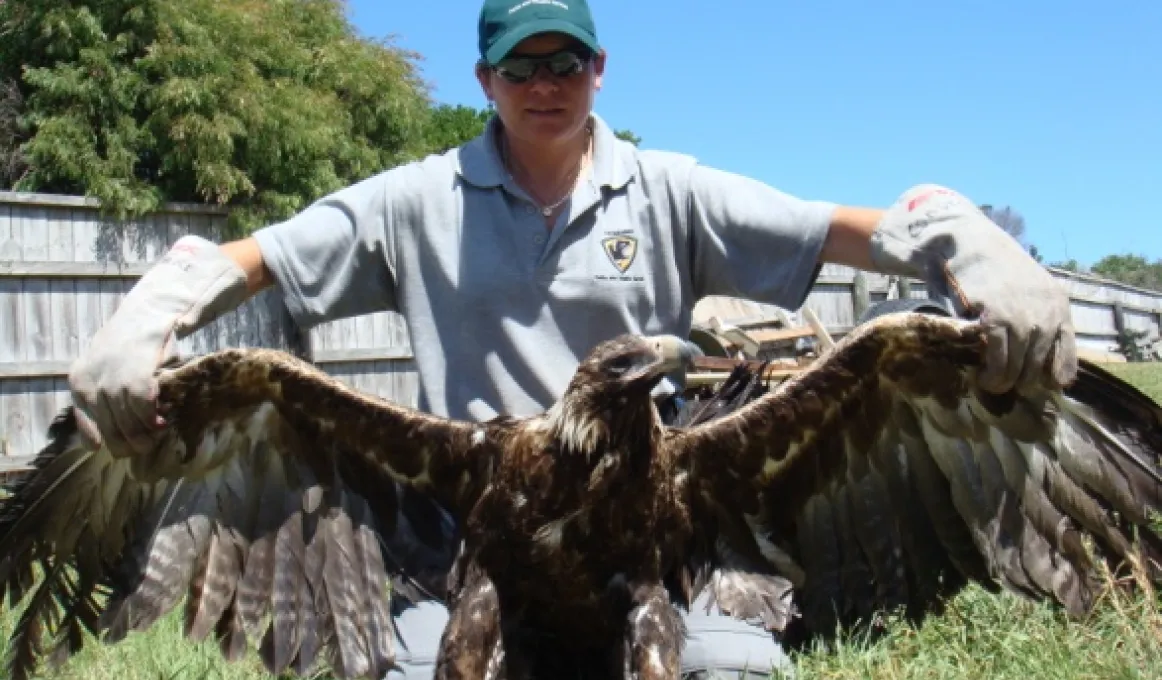Transitioning school leavers into ongoing jobs in Tasmanian Parks

The Commonwealth and Tasmanian Governments are working together to help Indigenous unemployed youth to transition successfully into ongoing full time jobs in Tasmanian Parks.
The Commonwealth and Tasmanian Governments are working together to help Indigenous youth gain employment through the Working on Country Tasmanian Parks and Wildlife Service Aboriginal Trainee Ranger Program. The program seeks to transition into ongoing full time jobs in Tasmanian Parks using the state protected area network as well as Indigenous Protected Areas and other Aboriginal managed lands as a training ground for work experience. Coupled with a Junior Ranger Program, the traineeship programme creates a career pathway from school to employment.
The program employs five Indigenous trainee rangers to undertake a four year full time traineeship with the Tasmanian Parks and Wildlife Service.
Working on Country funding to the Tasmanian Parks and Wildlife Service is conditional on the trainee rangers’ successful completion of at least Certificate IV in Conservation and Land Management and guaranteed ongoing employment with the Tasmanian Parks and Wildlife Service .
Supported by a coordinator, and supervised by Parks staff, the five trainee rangers’ work across 423 reserves around the state, as well as Aboriginal lands, including some of the eight Indigenous Protected Areas managed by the Tasmanian Aboriginal Centre. These Indigenous Protected Areas are located around Hobart, at Preminghana in the North-west, and a cluster of five Islands in the Furneaux group.
Trainee ranger Jessie Digney said, “Since starting at PWS under the Working on Country program, I have been provided with some of the best mentors and training opportunities in my life.”
“I have been able to head into the direction of Land Management and focus on the area that interested me most.”
Through rotational work placements, the trainees engage in all aspects of parks estate management in consultation with broader Aboriginal groups. They are also required to undertake community project work on Aboriginal land. One such project involved assisting with post-fire surveys on Luntalanana (Clarke Island) Indigenous Protected Area. This cooperation is strengthening the relationship between Tasmanian Parks Service and the Tasmanian Aboriginal Centre.
Trainee ranger Cindy Pitchford, based on Flinders Island, says she has enjoyed the range of activities and benefits that come with taking part in the program.
“I’ve learnt so much about my culture since becoming a Trainee Aboriginal Ranger from my Elders and community but most of all from fellow Aboriginal Parks Staff,” Cindy said.
“Being a part of this program has been one of the most fantastic experiences I’ve ever had.”
Through a partnership with the Tasmanian Department of Education, the trainee rangers also assist with the Tasmanian Pilot Junior Ranger Program, linking Aboriginal high school students with the Trainee Ranger Program and Indigenous Protected Areas.
School students receive advice and guidance from the trainee rangers in the steps they need to take to pursue a career in environmental management conservation and land management from an Aboriginal perspective.
Through the pilot program, Year 9 and 10 students engage in cultural studies including field excursions and interaction with Aboriginal communities. In addition, Aboriginal students undertake work experience at a Parks and Wildlife Field Centre.
Success was demonstrated in an earlier project which secured the first trainee ranger in a permanent job in Indigenous Protected Areas; three other trainees have progressed into Diploma level in Conservation and Land Management and are expected to transition into permanent jobs over the next 12 months.
Find out more
Having a job helps people build the future they want for their families and their communities.
The Australian Government supports Indigenous communities to manage Indigenous Protected Areas (IPA) for land conservation and to create jobs for people in remote locations where there are limited employment opportunities.